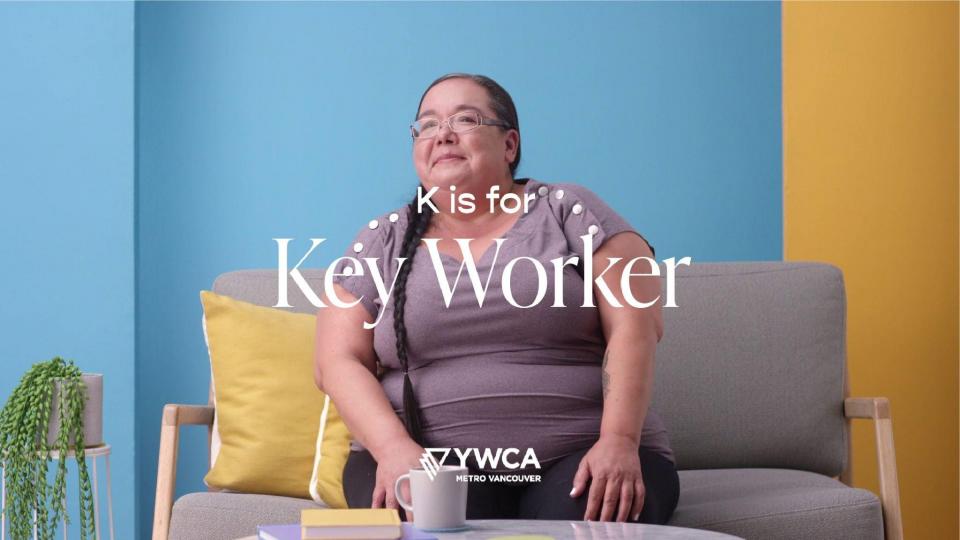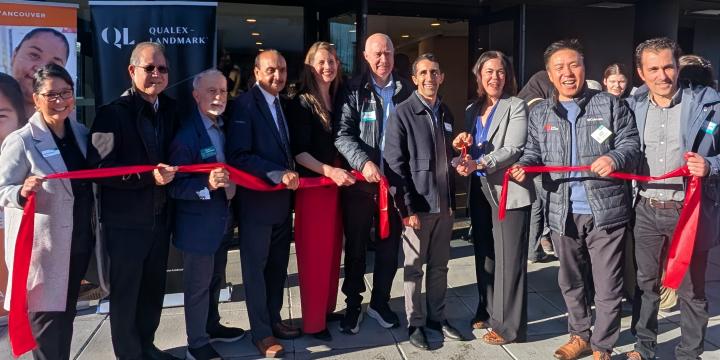
YWCA FASD Key Support Worker Wanda Pelletier says it is time to help people better understand Fetal Alcohol Spectrum Disorder and focus on learning how we can support people who have FASD.
"I’ve been working in Vancouver's Downtown Eastside for the past 24 years with Crabtree Corner Community Resource Centre, which is a part of YWCA Metro Vancouver. For the past 13 years, I have been Crabtree Corner’s FASD Key Worker. My role is to support children who have FASD and their families. I share my understanding of FASD and support families before, during and after an assessment. I may also support children and youth with school administration, during their transition to high school and/or help families find resources.
At times, I just sit and listen to women who are scared, ashamed and affected by the stigma society has about FASD and how it’s caused. It takes a strong person to reach out for support.
My main goal is to build trusting relationships with the families by using strength-based approaches, a harm reduction model and low barrier programming. At times people call me a “Community Connector.”

Today, I work with I work with 32 families and approximately 60 children and youth, as well as other community support people who are affected with FASD, some for the past 20 years. At Crabtree Corner, we are flexible and low barrier – you are welcome, whatever your life circumstances may be.
One thing I’ve learned is that we need to have a better understanding about how FASD affects the people who have the diagnosis. There is so much shame around women and children being exposed to alcohol that families are scared to seek out and ask for help.
It is time to move away from shaming women who may carry all sorts of traumas and have diverse life experiences. It's time to understand that not every child learns the same and that we need to make accommodations for what is working for them, and know that tomorrow may bring a whole different way to do things.
I stopped consuming alcohol when I found out I was pregnant with all three of my children, but two had pre-natal alcohol exposure because my children were unplanned pregnancies. Hands up to women that are able to stop, but at Crabtree we work with a population of individuals that may not always be able to stop. We are not here to pass judgement. We are here to support them where they are at. We need to shift away from thinking that prenatal alcohol exposure is done deliberately. In all the cases I see, it’s not, so the stigma about FASD has to stop now.
"It is time to move away from shaming women who may carry all sorts of traumas and have diverse life experiences."
It is estimated that 9 out of every 1,000 babies born in Canada, are born with FASD. We don’t know the exact number or how often there is prenatal alcohol exposure because campaigns tend to focus only on prevention. So once that child is born, the mom is already being told she’s done something wrong. It’s very hard to ask for help from that position. We need that information, but we also need to have other ways to look at FASD.
A boy I know was diagnosed with FASD at a young age. He had significant developmental delays – low birth weight, late walker, late talker and in pre-school noticed he couldn't get comfortable holding a pencil. I went to the classroom with different kinds of pencils with different shapes and textures. This still wasn't working so we advocated for him to be accommodated for his learning style with a device he can type on. It worked!
"It's time to understand that not every child learns the same and that we need to make accommodations for what is working for them, and know that tomorrow may bring a whole different way to do things."
This boy did amazing academically but struggled to adapt in a busy classroom; the noise and the lights were a big distraction for him. In later years, I saw this child pick up musical instruments and "wow," he got it, he played and he loved it. He said it took him to a "Music World." We focused on music and what he liked in order to build his confidence at school. He has now graduated and is interested in computer programming. A strength-based approach works.
Another thing I’ve learned is that we need to use safer language. Using safe language means that when a family comes to me for support, there's language I use so they feel safe to come back. It also means that when I go into meetings with schools and the first thing they start to talk about are the child’s struggles or concerns, I stop them and ask them to start with the things the kids are doing well. What are their interests? The child isn't lazy, they might just not understand the task or concept. Then we can move on to the areas we all need to work on to support the child's needs better.
That’s why we created a project named 'United Families for the Future' and an FASD dictionary with safe language that is easy to understand and available for everyone to gain knowledge from looking through it. Each letter stands for a different word that can be associated with FASD. It is meant to help people understand that FASD does not define a person, their family or community who supports them. It also aims to show people that having FASD does not deserve to come with stigma.”
September is International Fetal Alcohol Spectrum Disorder (FASD) Awareness Month.
YWCA Metro Vancouver has launched an FASD Dictionary – a safe and low-barrier resource to educate the public and reduce the stigma for people living with FASD.
Photo by Sandy Millar on Unsplash

